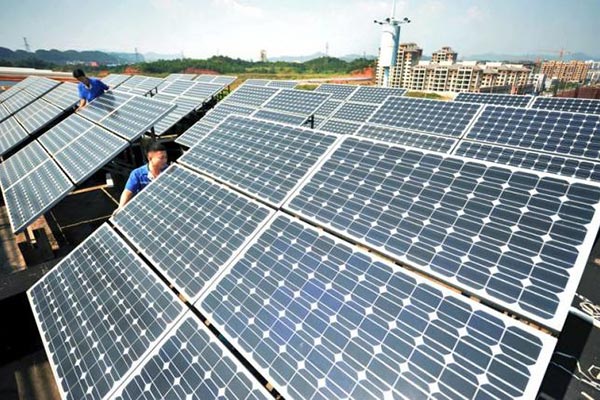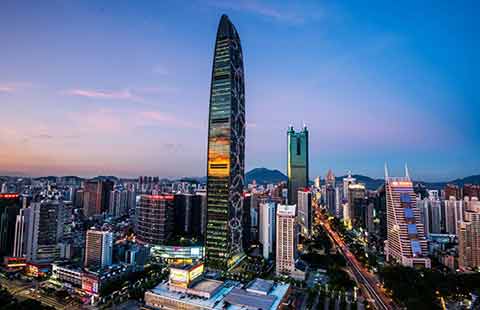China to cut on-grid tariffs for solar, wind power: State planner
(Agencies) Updated: 2015-12-25 10:10
 |
|
Workers install solar panels on the rooftop of a company in Shangrao, Jiangxi province, October 11, 2015.[Photo/Agencies] |
Starting in 2016, on-grid tariffs for solar producers will be 0.02 to 0.10 yuan lower per kilowatt-hour - with the higher cuts applying in the country's less populated, arid western region - while tariffs for wind power generators will fall 0.02 to 0.03 yuan, the National Development and Reform Commission said in a statement.
The cuts, which were expected, are in line with a 0.03 yuan cut on Wednesday to on-grid tariffs for thermal power. Coal still fires more than 70 percent of China's power generation.
"This is positive for rooftop solar," said Rosie Pidcock, senior business development manager at UGE International, a New York-headquartered rooftop solar developer operating in China, noting the biggest impact would fall on utility-scale developers, who have mainly built solar farms in the country's west.
The cost of installing panels was still set to fall in 2016, Pidcock said, and the cuts were not enough to push companies into the red.
China is trying to reduce its dependence on fossil fuels that are contributing to choking smog. The city of Beijing declared two pollution "red alerts" this fall.
Local governments have also been increasing the subsidies that solar producers have come to rely on, particularly in the country's eastern half, where solar has struggled to take off.
The city of Beijing added a local subsidy for "distributed solar" - which includes rooftop and other small installations under 20 megawatts - in August, while surrounding Hebei province, the country's biggest steel-producing region and heavy coal user, added one earlier this month. Shanghai also instituted a loan program for distributed solar this month.
China failed to meet ambitious targets for solar power last year, and re-doubled its efforts this year, calling for 23.1 gigawatts of new solar farm capacity to be installed. Less than half that was installed by end-Sept.
The country's wind power capacity reached 113.3 GW at end-November, up from 95.8 GW last year, although in the first half of 2015, 15.2 percent of the power generated was wasted.
In November, the planning commission released documents on reforms in the power sector that would give preferential treatment to renewable producers in proposed electricity trading markets.
- China's pro-growth moves produce big dividends for global economy
- 'New normal' needs new interpretation
- Proposed system for tax collection to ease burdens
- Xinjiang's natural gas output exceeds 30b cubic meters
- CNPC integrates pipeline assets
- China aims for better consumer rights in 2016
- Foreign exchange reforms to result in greater yuan swings
- Entrepreneur confidence index down in Q4: PBOC survey

















